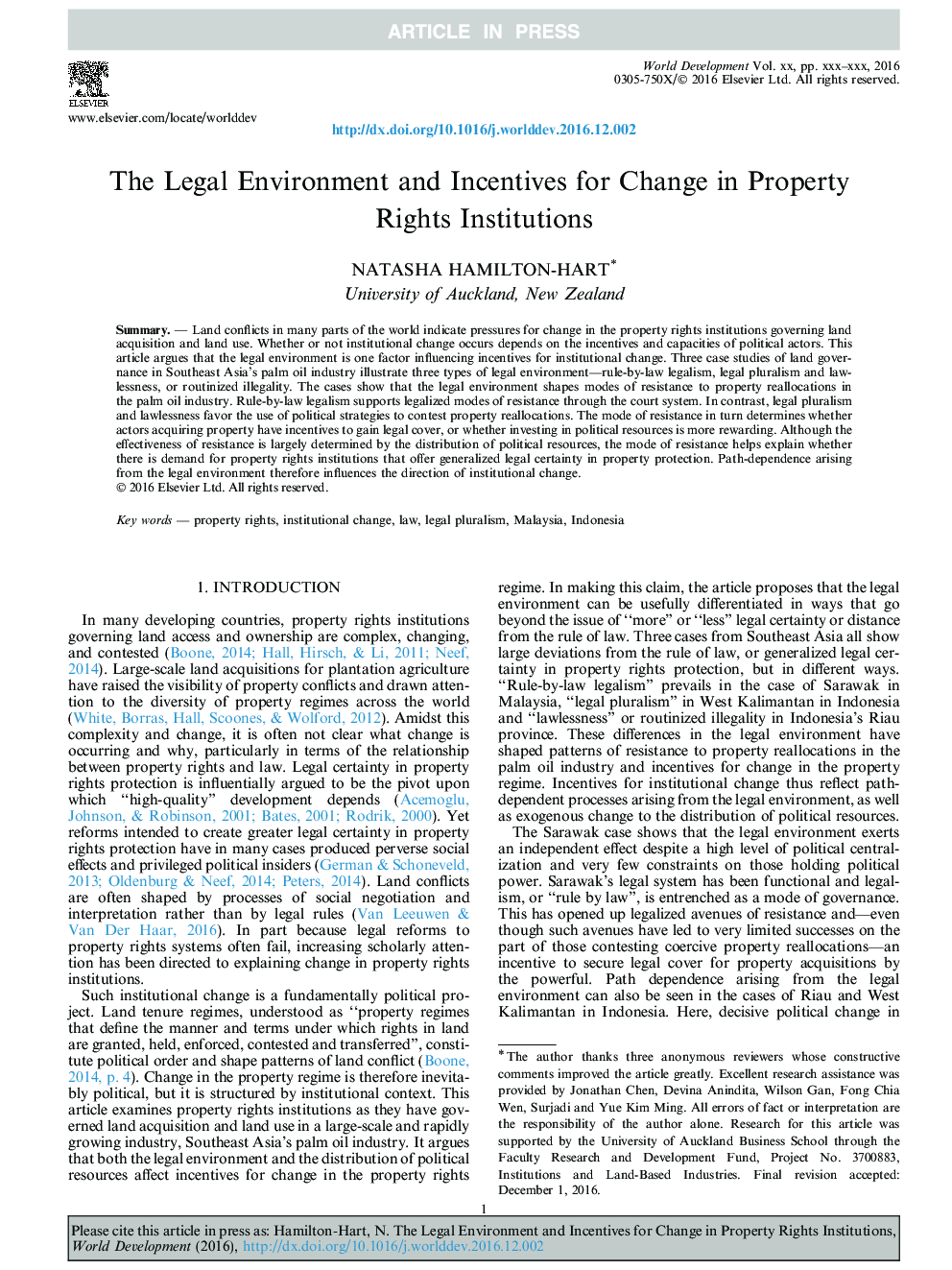| Article ID | Journal | Published Year | Pages | File Type |
|---|---|---|---|---|
| 5105032 | World Development | 2017 | 10 Pages |
Abstract
Land conflicts in many parts of the world indicate pressures for change in the property rights institutions governing land acquisition and land use. Whether or not institutional change occurs depends on the incentives and capacities of political actors. This article argues that the legal environment is one factor influencing incentives for institutional change. Three case studies of land governance in Southeast Asia's palm oil industry illustrate three types of legal environment-rule-by-law legalism, legal pluralism and lawlessness, or routinized illegality. The cases show that the legal environment shapes modes of resistance to property reallocations in the palm oil industry. Rule-by-law legalism supports legalized modes of resistance through the court system. In contrast, legal pluralism and lawlessness favor the use of political strategies to contest property reallocations. The mode of resistance in turn determines whether actors acquiring property have incentives to gain legal cover, or whether investing in political resources is more rewarding. Although the effectiveness of resistance is largely determined by the distribution of political resources, the mode of resistance helps explain whether there is demand for property rights institutions that offer generalized legal certainty in property protection. Path-dependence arising from the legal environment therefore influences the direction of institutional change.
Related Topics
Social Sciences and Humanities
Economics, Econometrics and Finance
Economics and Econometrics
Authors
Natasha Hamilton-Hart,
